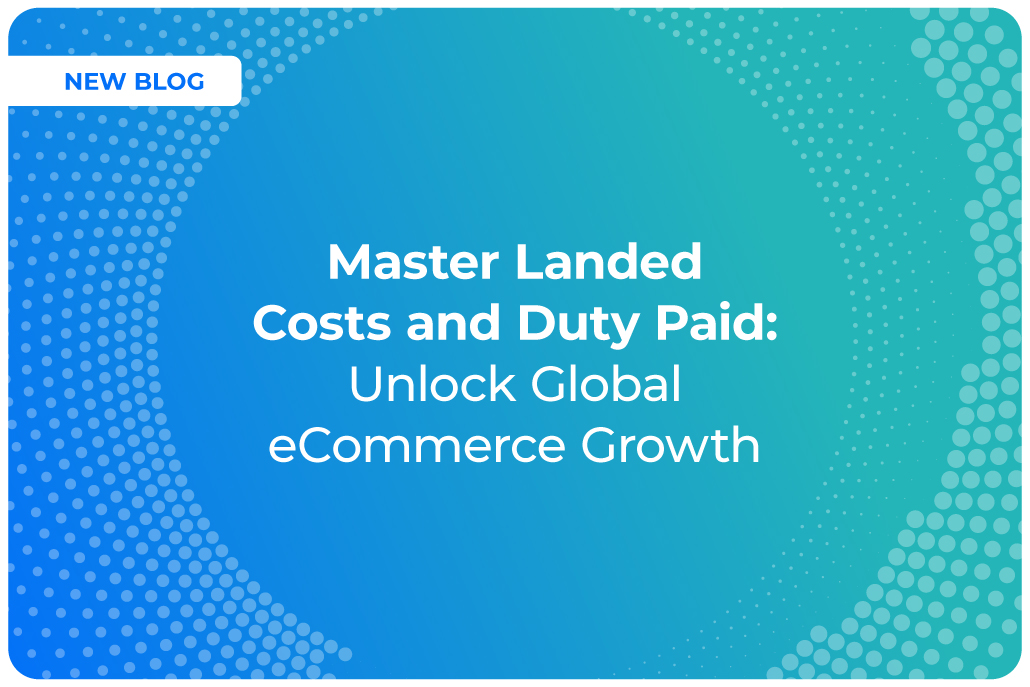
Author: Martin Palmer, Co-Founder of Hurricane Commerce
Air cargo companies encounter a variety of compliance challenges in managing global supply chains.
Among them are adhering to international sanctions and export controls, as well as complying with tariffs and customs regulations.
A key issue is distinguishing between goods that are permissible to ship and those that are not, along with verifying the recipients of shipments, often within short time constraints. The air cargo industry requires speed and reliability, while maintaining high standards of security and safety.
In recent years, the air cargo industry has witnessed a sweeping introduction of stringent regulatory requirements across the globe, underscoring the critical importance of compliance in ensuring safe and secure air transportation.
Key initiatives such as the Air Cargo Advance Screening (ACAS) in the USA, the Import Control System 2 (ICS2) in the European Union, Pre-Load Air Cargo Targeting (PACT) in Canada, and Pre-Load Data Informed Cargo Targeting (PreDict) in the United Kingdom have been established to enhance the security framework surrounding international air cargo operations.
These regulations place a direct and non-negotiable responsibility on carriers to provide comprehensive, accurate, and timely data to the relevant authorities. This data is essential for effective risk assessment and mitigation, enabling authorities to pre-emptively identify and address potential security threats.
The stakes are high: non-compliance can result in severe consequences, including hefty fines, suspension, or even the revocation of operating licences in specific countries. Moreover, the reputational damage stemming from non-compliance can be irreparable, tarnishing a carrier’s image and eroding trust with customers and partners.
In recent months, there has been a notable escalation in enforcement actions by various authorities, a trend that shows no signs of abating. This intensified scrutiny reflects a broader commitment to ensuring the highest standards of security and compliance within the industry.
For instance, the ACAS program in the USA mandates that carriers submit detailed cargo data before loading, enabling Customs and Border Protection (CBP) to perform thorough risk assessments. Similarly, the ICS2 system in the EU requires pre-arrival and pre-departure information, aiming to tighten control over the entry and movement of goods within the region.
Canada’s PACT initiative also emphasises pre-loading data requirements, facilitating targeted security measures before cargo is loaded onto aircraft. Meanwhile, the UK’s PreDict program focuses on leveraging advanced data analytics to enhance cargo targeting and screening processes, ensuring that high-risk consignments are identified and addressed proactively.
In today’s globalised economy, data has emerged as the cornerstone of international supply chains, underpinning every facet of the air cargo industry.
From sourcing commodities and identifying customers to selecting the most efficient transportation methods, ensuring regulatory compliance, calculating and collecting duties and taxes, invoicing, and managing risks, data plays an indispensable role.
However, the pursuit of complete and accurate data remains fraught with challenges. Often, due to time constraints or oversight, data is not recorded correctly at the initial instance. This leads to multiple iterations and extra efforts to rectify errors, resulting in delays, increased costs, and dissatisfaction among customers and regulatory authorities.
One particularly pressing issue is the often low quality of data accompanying e-commerce shipments. Unlike traditional shipments, where exporters provide detailed declarations to customs authorities, e-commerce consignments frequently come with vague or generic descriptions on air waybills. Terms like “textiles,” “clothing,” or “shoes” are common, offering little insight into the specific contents of a shipment.
This lack of detailed information imposes a significant burden on air cargo companies. They are tasked with deciphering these ambiguous descriptions to determine what can and cannot be transported. The challenge is compounded by the sheer volume of e-commerce packages, which continues to grow exponentially. Without precise data, cargo companies face difficulties in managing logistics, ensuring compliance with various regulations, and maintaining safety and security standards.
Furthermore, many import countries have intensified their scrutiny of low-value e-commerce shipments. These countries are concerned with a range of compliance issues, including safety, security, classification, and valuation. The lack of detailed shipment information makes it harder for air cargo companies to meet these stringent requirements, potentially leading to delays, increased inspections, and higher operational costs.
Additionally, the rise in consumer-to-consumer (C2C) and business-to-consumer (B2C) transactions further complicates the landscape. Air cargo companies now have to handle a diverse array of small, individualised shipments.
This surge in e-commerce has led to a dramatic increase in the volume of parcels, each with varying levels of data quality and completeness. Cargo companies must therefore invest in advanced data management systems and technologies to efficiently process and verify shipment information, ensuring compliance while maintaining operational efficiency.
To address these challenges, air cargo companies are turning to innovative solution suppliers providing services such as artificial intelligence (AI) and machine learning (ML). These technologies can help automate data verification processes, identify patterns, and predict potential compliance issues before they arise.
Collaboration between stakeholders is essential. Strengthening partnerships between air cargo companies, customs authorities, and shippers can facilitate better data sharing and improve the accuracy of shipment information. Implementing standardised data formats and protocols across the industry can also help in reducing discrepancies and enhancing the overall quality of data.
While data is the backbone of international supply chains in the air cargo industry, obtaining accurate and complete data remains a significant challenge. By embracing advanced technologies and fostering collaboration, air cargo companies can overcome these hurdles, ensuring efficient, compliant, and reliable operations in an increasingly complex global trade environment.
Hurricane, led by my fellow co-founder David Spottiswood, is partnering with air cargo specialists to provide them with the essential tools needed to navigate and overcome these regulatory challenges.
The company’s data solutions are not only geared towards ensuring strict compliance with regulatory requirements but also towards significantly enhancing the overall customer experience.
In so doing, Hurricane is helping to develop and embed innovative solutions that streamline processes and deliver superior value to customers.
As enforcement actions increase, air cargo carriers must prioritise robust data management systems and meticulous compliance practices. Investing in advanced technology solutions for data collection and transmission, training staff on regulatory requirements, and maintaining open communication channels with regulatory authorities are critical steps in navigating this complex landscape.
The air cargo community must recognise that compliance is not merely a regulatory obligation but a fundamental component of operational integrity and customer trust.
As global trade continues to expand, the ability to meet and exceed these regulatory standards will distinguish leading carriers from their competitors, driving both security and business success in an increasingly interconnected world.
You can read the full article in Air Cargo Week here – https://aircargoweek.com/navigating-the-skies-of-compliance/













